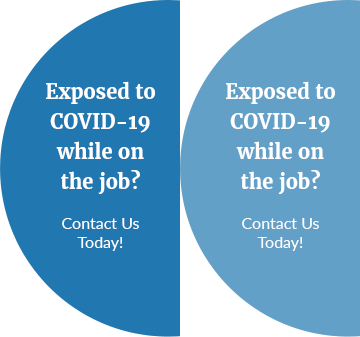Delayed Injuries from a Car Accident
Even in cases when the damage is not serious, car accidents can be a horrific experience. Every person has a different reaction to a collision. Some find that their minds are inundated with incessant thoughts and concerns, while others experience a mental fog, which makes it hard to think or concentrate.
Besides mental trauma and emotional turmoil, vehicle crashes can also cause physical damage that is challenging to notice amidst a flurry of immediate distractions. Some serious physical issues might not present any symptoms for a number of days.
Shoulder or Neck Pain or Stiffness
A classic delayed symptom injury related to accidents is called whiplash. A majority of whiplash injury cases occur due to rear-end car collision at speeds of below 14 miles per hour. These injuries can be severe and may necessitate CT scans, MRIs, or x-rays for proper diagnosis.
How Whiplash Occurs
Whiplash occurs when your neck is whipped back and forth at a rapid speed like someone is lashing out a whip, which gives this injury its name. The muscles, tendons, and spinal discs in the neck area are highly sensitive to jerky and violent motions. Even a minor, low-speed vehicle accident can cause you to whip your neck enough to trigger this injury.
Whiplash occurs most commonly in rear-end crashes involving a front vehicle that is completely halted. When the reckless motorist rams into the stopped front car from behind, the motorist in the front vehicle will be thrown backward in their seat. The inertia from the impact shifts and tosses the front car’s driver forward only a split second later.
While it is possible to experience pain immediately after a vehicle accident, sometimes the symptoms can take a few days to manifest. If you experience stiffness or pain around your neck, head, or shoulders, consult your doctor promptly. In the case of whiplash is not the underlying cause for the pain, it might signal a spinal injury, which necessitates immediate treatment.
Headaches
One of the most common symptoms people experience after being in a car accident is the development of a headache. Often times, headaches are harmless and will resolve over time. But sometimes they can indicate more serious issues. Headaches can signal blood clots on the brain, head, or neck injury, or even a deep concussion.
It is best to consult a doctor if you experience headaches after a crash to ensure that it does not indicate a worse condition that can cause severe damage to your health. The risk of traumatic brain injury is also associated with car accidents. If you hit your head in a collision, the brain’s soft tissue may affect the skull’s hard interior.
This could lead to inflammation, bleeding, bruising, and brain tissue damage. These types of brain injuries could prove to be fatal, even if you do not have any immediate symptoms after an accident.
Abdominal Pain or Swelling
Any abdominal pain after a vehicle crash could indicate internal bleeding. Signs of internal bleeding also include large patches of deep purple bruising, fainting, and dizziness. Internal bleeding can go unnoticed for hours or even days. This could be life-threatening and must be diagnosed and treated by a trained emergency medical professional.
Back Pain
Back pain after a crash could occur due to injury to the ligaments, muscles, or nerves in the back or even because of vertebrae damage. If you experience back pain days after your car wreck, it may be due to a soft tissue injury, whiplash, a sprain, a herniated disc, or spinal cord injury.
The above conditions can lead to debilitating pain and mobility challenges. Thus, it is crucial to seek treatment as soon as the symptoms manifest. According to reports by the Back & Neck Pain Center, low back pain is found in over 50 percent of rear impact accidents in which injury was reported and in almost 75 percent of all side-impact accidents.
Numbness
Whiplash does not always cause neck and shoulder pain. It is also associated with Whiplash Associated Disorder, which presents as numbness. This condition occurs due to damage or injury to spinal column nerves and can lead to a lack of feeling, sensation, or tingling in the arms and hands. According to estimates, around 20 percent of rear-end vehicle accident victims experience symptoms of whiplash, either immediately after the crash or as a delayed symptom.
PTSD
Post-Traumatic Stress Disorder (PTSD) is a common condition in victims of car accidents, who often experience disturbing and vivid memories of the crash and nightmares. At times, victims feel as if they are reliving the accident or experience flashbacks.
Personality or Physical Function Changes
Changes in personality or physical function could indicate traumatic brain injury due to a concussion. The symptoms include impaired movement, memory, or thinking, issues with hearing or vision, or depression, and other personality changes. Data by the Centers for Disease Control and Prevention indicates that vehicle accidents are the third leading cause of traumatic brain injuries and the second leading cause of fatalities due to traumatic brain injuries.
Legal Help from a Seasoned Pennsylvania Auto Accident Lawyer
Caroselli, Beachler & Coleman recommends that you consult a medical professional as soon as you can after an accident. Doing so is understandably important for your health, but also for the sake of any personal injury lawsuit or insurance claim that you file in the future.
Any delay in consulting a doctor could be used by the insurer against you. The insurance company may contend that you did not sustain injuries in the crash or that your injuries were not as serious as you claim they are. For a free, confidential consultation, call us today at 412-567-1232 or toll-free at 866-466-5789, or contact us online.






